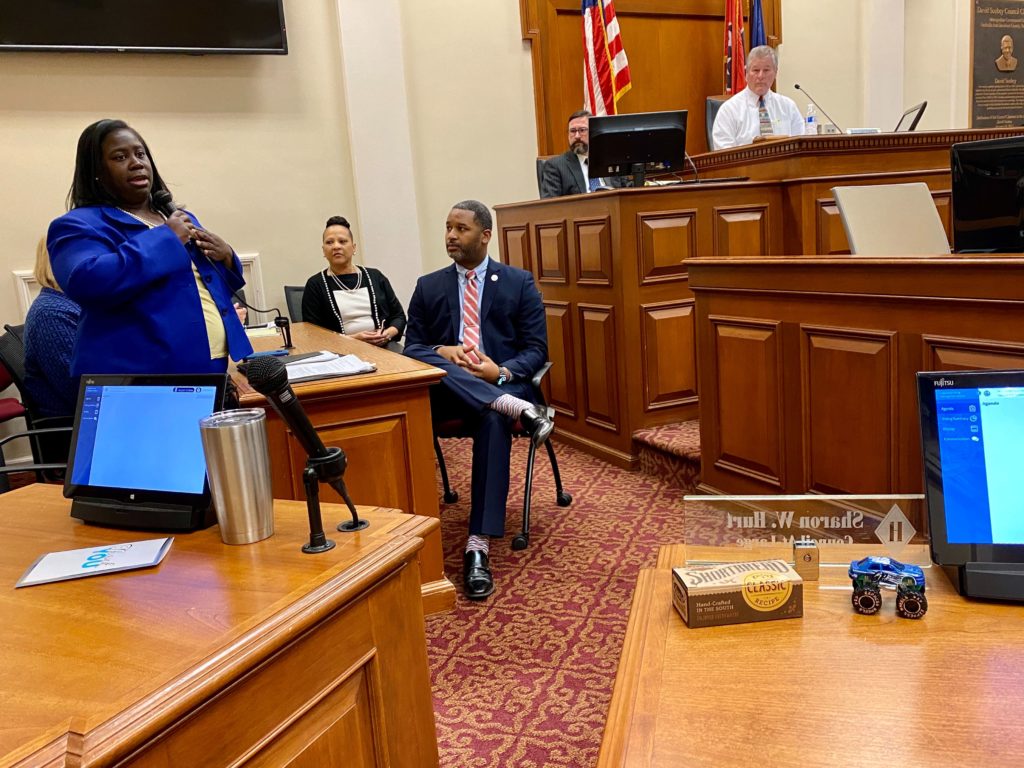
Nashville’s Metro Council is preparing to settle a lawsuit with the private company that operates the city’s Juvenile Detention Center, after four teens escaped last fall.
The resolution, which will be introduced at Tuesday night’s council meeting, requires Youth Opportunity Investments to pay $144,000 to cover the “significant cost to the Metropolitan Government” to track down the juveniles — a pursuit that lasted almost two weeks.
According to a government analysis, the Metro Nashville Police Department spent more than $253,000 while officers worked day and night to locate the teens. In addition to nearly $113,000 in pay for regular shift hours, the department also spent about $129,000 in overtime and more than $11,000 for car and helicopter use.
Four teens escaped on the night of Nov. 30, 2019, when a series of missteps by detention center staff allowed them to walk out the front doors of the Juvenile Court building on Woodland. An internal report by YOI found that multiple staff members broke protocol that night when they let the teens out of their pods during bedtime lockdown hours and allowed them to travel to another floor in an elevator, without a staff member present.
Three employees involved in the incident have been fired, and at least three have been charged by MNPD for “facilitating, through recklessness,” the escape.
The police department’s Juvenile Crime Task Force spent 13 days searching for the teens before finding the final escapee on Dec. 12. Several of the teen’s relatives and friends have also been charged for helping them while they were in hiding.
YOI has accepted some of the blame for the incident. At a Metro Council meeting in January, the company’s CEO said he was “ashamed” and that staff had since “tightened the ship.”
Representatives from YOI told members of the council’s public safety committee that they had retrained the entire staff and raised the facility’s starting wage from $12 to $15 an hour, to attract more qualified employees. They said a contract monitor had also started supervising the site every day.
But according to Metro, YOI says the city is also partially at fault for allowing the escape, because the government-owned building’s video security system was outdated and a door had been left propped open. The company also doubted that a court would allow Metro to recover the total amount of regular shift hours paid out by the police department during the search, if the breach of contract lawsuit went to trial.
YOI and the Juvenile Court, which oversees the detention center, both declined to comment.
But at the public safety committee meeting in January, Juvenile Court Judge Sheila Calloway agreed that the court could have done more to secure the facility and prevent the escape.
“We take responsibility for everything that led up to this,” she told council members. “And we are definitely making sure that nothing like this, to this magnitude, happens again.”
Metro awarded a contract to YOI in 2015, after only one other private company submitted a bid to operate the Juvenile Detention Center. The contract was set to expire this June, and some council members and activists urged the city not to renew.
However, Calloway told the public safety committee at the January meeting that the city was not prepared financially or logistically to run the facility itself, in such a short period of time. She added that the 26-year-old building isn’t equipped to keep employees, juveniles or nearby residents safe, regardless of who is managing the detention center.
YOI’s contract has been renewed for the time being. But Metro is looking into alternatives, including building a new Juvenile Court Facility — once the budget allows.
“The settlement reached with Youth Opportunity Investments is an important recoupment of scarce Metro sources,” Mayor John Cooper told WPLN News in an emailed statement. “Moving forward, robust improvements in facility oversight and safety procedures must continue to be implemented at the Juvenile Detention Center to protect both Nashville residents and detainees.”
This post was updated at 10:35 a.m.
Samantha Max is a Report for America corps member.

